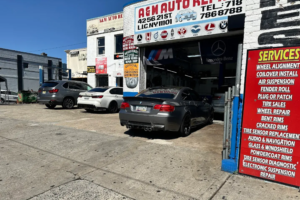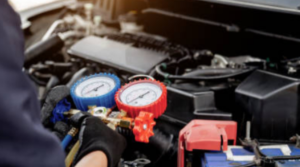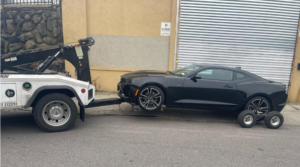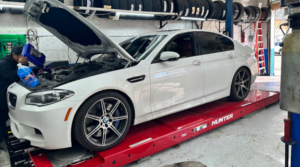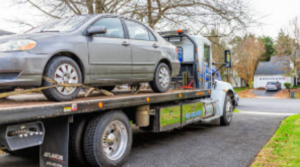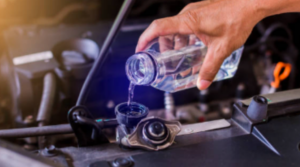Your car is one of your biggest investments and something on which you depend in your daily routine. Nowadays, people often keep their lovely older cars longer before upgrading and trading them in.
Maintaining your car properly by professionals and technicians is more important than ever. With proper care and attention, you can extend the life of your used car and without straining your finances enjoy dependable transportation every time. In this article, you’ll get a complete guide about how to extend the life of your older vehicle just by getting some regular maintenance. So, read it to increase your knowledge.
Top 10 Regular Maintenance Tips To Extend Your Older Vehicle Life
Extending the lifespan of your car involves proactive care and regular maintenance. Here are 10 important regular maintenance to extend the life of your older car:
- Prompt Repair of Minor Issues
If not addressed in time small problems can escalate into major issues. Whether it’s an unusual noise, a minor leak, or a slight pull to one side, addressing these issues promptly can save significant repair costs and extend your car’s lifespan.
- Change air filters regularly
Every 12,000 to 15,000 miles the engine and cabin air filters should be replaced. Dirty air filters can reduce engine performance and fuel efficiency, also negatively impact the air quality inside your car.
- Regular Oil Changes
Engine oil cools and lubricates the moving parts within your engine. Typically every 3,000 to 5,000 miles, regular oil changes are essential to prevent engine wear and maintain efficiency. Always use the oil grade that’s recommended in your vehicle’s manual.
- Tire Maintenance
Check tire pressures monthly and try to keep them at the level recommended in your car’s manual. For tread damage and wear, inspect the tires. Use the penny test to check tread depth; it’s time for new tires if you can see the top of Lincoln’s head. Properly maintained and inflated tires improve safety and fuel efficiency.
- Brake Maintenance
Inspect and replace brake pads regularly as needed. Worn brake pads can lead to inefficient braking and damage to rotors and other brake parts, compromising your vehicle’s safety and your own.
- Maintain Proper Fluid Levels
Your car relies on various fluids including brake fluid, transmission fluid, and many others. Check these fluid levels regularly and top them off if needed. This prevents overheating and other damage, also ensures the smooth operation of various systems.
Engine Oil – The most important fluid on this list, lubricates the moving engine parts. Without proper levels of oil, your engine may eventually stop working. At least one time in between oil changes check the oil. A few times a year in between oil changes adding a quart of oil is not uncommon for higher mileage cars. Adding more than this could be a sign of a problem.
Automatic Transmission Fluid – Some cars have lifetime transmission fluid that won’t need to be replaced for 100,000 miles or more. To make sure the level is where it should be, it is still worth checking once a year. If your car doesn’t have a dipstick, ask your technician to check it for you.
Engine Coolant – It’s also known as antifreeze, coolant keeps your car running in hot or cold weather. The antifreeze level should be checked twice a year before the cold or hot season starts.
Brake Fluid – The brake fluid can easily be checked as well while you check the coolant level. At every oil change or at least once a year brake fluid should be checked.
Power Steering Fluid – The power steering fluid reservoir is near the brake fluid reservoir. You can see the fluid level inside if the reservoir is clear. If you have to open the reservoir to check the fluid level, wipe the lid off with a rag so dirt does not fall into the fluid when you take the cap off. At least once a year, the power steering fluid should be checked.
Windshield Washer Fluid – You might use windshield wipers more often than you realize, so once a month check the fluid level. By yourself, you can add additional fluid as needed. Often during rainy and winter seasons, and before you go on a long drive, check the fluid levels.
- Battery Care
Keep the battery free from corrosion and clean. To prevent unexpected failures, check the battery’s charge periodically, especially if it’s older than three years.
- Weather Protection
Protect your vehicle from extreme or bad weather conditions. Use car covers or park in shaded areas or garages to prevent sun damage. In winter, to prevent rust and corrosion, wash off road salt.
- Regular Car Cleaning
Wax and wash your vehicle regularly to protect the paintwork. Clean the interior to prevent wear on interior surfaces and upholstery. This not only maintains the appearance of your vehicle but is also beneficial in preserving its value.
- Adhere to Maintenance Schedules
Follow the maintenance schedule outlined in your car’s owner’s manual. This schedule is designed to the specific needs of your car model and can guide you in maintaining optimal vehicle performance.
Regular maintenance and proactive care are keys to extending the life of any car whether it’s old or new. By following these tips and consulting professionals for specific needs, you can ensure that your vehicle remains reliable and efficient for years to come.
Who to call?
We have provided top-quality tires, auto repair, and other services for the past years. With a strong emphasis on customer satisfaction, our skilled technicians offer a wide range of services like oil changes, brake service, alignments, tire installation, and many other automotive services including repairs. Our tire catalog covers all driving conditions and vehicle types, including all makes and models of the car. We focus on efficient service, delivering quickly, ensuring customer satisfaction, and the best value for your money. Call us now to schedule your appointment at your earliest convenience!

